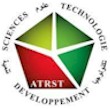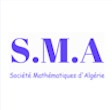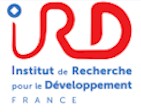
Honorary Chair
– Abdelkrim Beniaiche, President of the University of Bejaia
– Sofiane Aoudia, Dean of the Exact Sciences Faculty
General Chairs
– Djamil Aïssani, University of
Béjaia, Algeria.
– Maurice Tchuenté, University of Yaoundé (Président ASDS).
– Mathieu Roche, CIRAD, France.
Organizing committee
– Mohamed Boualem, Director of the LaMOS Research Unit, Chair
– Djamila Boukedrera, Head of
computer Science Department,
Co-chair.
– Hichem Slimani, Director of
LIMED, Co-chair.
– Nourredine Khimoum, Head of Operational Research Depart-ment, Co-chair.
Technical Program Committee
– Chair :
– Kamel Barkaoui, Cnam Paris & Beït al-Hikma Tunisia
Computer Science Track Co-Chairs :
– Karim Djouani, UPEC & TUT South Africa ;
– César Viho, IRISA
– Mokhtar Sellami , CNRST Algiers, Univ-Annaba
Applied Mathematics Track CoChairs :
– Nabil Gmati, IABF University Saudi Arabia,
– Tri Nguyen-Huu, IRD,
– Laurent Debreu, INRIA
Important dates
– Notifications of acceptance :
>> July 24 th 2024
–Camera ready paper due :
>> July 31 st, 2024
– CARI Conference:
>> 23-26 November, 2024, Université de Béjaia








CONTEXT: CARI, the African Conference on Research in Computer Science and Applied Mathematics, is the fruit of international cooperation between African, European and international research institutes. Organized every two years since its first edition in Yaoundé in 1992, CARI is more than just a scientific meeting, but a dynamic environment for cooperation that brings together researchers and decision-makers in the fields of computer science and applied mathematics.
The scientific program, which reflects the richness and diversity of research carried out on the African continent in particular, focuses on work likely to contribute to scientific and technological development, environmental awareness and natural resource management.
CARI 2024 is organized under the auspices of ASDS (African Society in Digital Science) in partnership with the Institut National de Recherche en Informatique et en Automatique (Inria), the Institut de Recherche pour le Développement (IRD), the Centre de coopération Internationale en Recherche Agronomique pour le Développement (CIRAD).
CARI 2024 welcomes regular submission papers describing novel results, as well as short papers on work-in-progress and position work.
TRACK COMPUTER SCIENCE
CARI 2024 Topics in this track include, but not limited to the following fields:
- Edge, Fog and Cloud Computing Systems
- Internet of Things (IoT)
- Cyber-Physical Systems (CPS)
- Blockchain Technology
- Safety and Correctness of Concurrent and
- Distributed Systems
- Network Privacy and Security
- National Information Security
- Big Data and Data Science
- Machine Learning and AI systems.
- Informationsearch and retrieval
- Knowledge Engineering
- Ontologies and Semantics
- Multi-agent Systems
- Natural Language Processing
- Mobile and Wireless Networking
- Service-Oriented Systems
- Applications : Resource Management (energy, water, air quality, waste management, …) Healthcare, Transportation, Smart Grids, Education, Social Networks, Agriculture, Smart Cities, E-Government,…
TRACK APPLIED MATHEMATICS
CARI 2024 Topics in this track include, but not limited to the following fields:
- Analysis of Dynamical Systems,
- Partial Differential Equations
- Numerical Analysis –
- Optimization, Inverse Problems and Control
- Stochastic Systems
- Applied Statistics and Probability
- Image and Signal Processing
- Mathematics and Machine Learning
- High Performance Scientific Computation
- Mathematical Modelling
- Mathematical Finance
- Actuarial Science and Economy
- Earth Sciences and Environment
- Mathematical Biology, Ecology and Medicine
PUBLICATIONS
All accepted papers will be published in the Springer LNCS series and made available through the SpringerLink Digital Library (indexed by Scopus, ACM Digital Library, dblp, Google Scholar). The conference best papers will be considered for a submission of extended versions to the ARIMA journal.
SUBMISSION
CARI 2024 accepts submissions in three categories:
• Regular research papers, up to 14 pages in length (excluding references).
• Work-in-progress papers on early results, up to 7 pages in length (excluding references).
• Position papers on introducing new or disruptive ideas (supported, if possible, by empirical evidence and measurements) that differ from prior published work, up to 7 pages in length (excluding references).
All submitted papers must be original, unpublished and not be submitted for publication elsewhere. Papers should be formatted using the Lecture Notes in Computer Science (LNCS) format and submitted in English through EasyChair https://easychair.org/conferences/?conf=cari2024.
CARI2024 supports a single-blind review process where authors’ names are included in paper submissions.
Deadline for the paper submission OVER...:
Jour(s)
:
Heure(s)
:
Minute(s)
:
Seconde(s)
Programme Committes
To join the programme committee you can email to the programme chair Prof Berkaoui Kamel (kamel.berkaoui@gmail.com)
COMPUTER SCIENCE
Algeria
Louiza Bouallouche, Univ. Bejaia
Faiza Belala, Univ. Constantine
Mahmoud BOUFAIDA, Univ. Constantine
Mohamed Mezghiche, Univ. Boumerdes
Habiba Drias, USTHB, Alger
Abdelkrim Abdelli, LSI USTHB Alger
Laid Kahloul, Univ. Biskra
Abdelkader Dairi, Univ. Oran
Mohamed Tarek Khadir, Univ. de Annaba
Mohamed Tayeb Laskri, Univ Annaba
Salim Bitam, Univ. Biskra
Tunisia
Riadh Robbana, INSAT, University of Carthage
Ali Frihida, ENIT, UTMYahya Slimani, FST, UTM
Mohamed Escheikh, ENIT UTM,
Mohamed Jmaiel, ENIS, Univ. Sfax
Hanen Boussi Rahmouni, ISTMT Tunis
Ryma Abbasi, Sup’Com, University of Carthage
Faouzi Ghorbel, UM, ENSI
Hichem Besbes, Sup’Com, University of Carthage
France
Eric Badouel, Inria Rennes
Hélène Kirchner, Inria Rocquencourt
Saddek Bensalem, Univ. Grenoble
Belgacem Ben Hedia, LIST CEA, Saclay
Mohand-Said Hacid, LIRIS Univ. Lyon1
Farouk Toumani, Limos Univ. Clermont Auvergne
Mohamed Kaaniche,LAAS Toulouse
Samira Cherfi, Cnam Paris
Mohamed Mosbah, Labri Bordeaux
Reda Bendraou , Lip6 Paris
Stefano Secci, Cnam Paris
Lyes Benyoucef, Aix-Marseille University
Pierre Manneback, Université de Mons Belgique
Ali Mili, NJIT, Newark, USA
Gaoussou Camara, Alioune Diop University of Bambey (UADB) Sénégal
Moussa Lo, Université numérique Cheikh Hamidou KANE & ASDS , Sénégal
Maurice Tchuenté, Université de Yaoundé II , Cameroun,
Paulin Yonta Melatagia, Université de Yaoundé II, Cameroun
Thomas Djotio Ndié, University of Yaounde 1, Cameroun
Moussa Hama Bonkano, PM, Niger
Viviane Nwaocha, National Open University of Nigeria
Victor Odumuyiwa, University of Lagos, Nigeria
Bruce W. Watson, Stellenbosch University, Stellenbosch, South Africa
Riaan Wolhuter Stellenbosch University, Stellenbosch, South Africa
Anish Kurien, Tshwane University of Technology, Pretoria, South Africa
Okba Kazar, Sharjah, United Arab Emirates
Ali Jaoua, Qatar University, Doha
Mohamed Faouzi Atig, Uppsala University, Sweden
APPLIED MATHEMATICS
France
Tri Nguyen-Huu
Julia Lawall
Boniface Nkonga
Abderrahmane Habbal
Rachid Senoussi
André Totohasina
Majdi Azaiez
Laurent Debreu
Christophe Lett
Marc Bonnet
Didier Auroux
Fabien Campillo
Etienne Pardoux
Gauthier Sallet
Bernard Cazelles
Jerome FEHRENBACH
Bijan Mohammadi
Hatem Zaag
Frederic Gerbeau
Suzanne Touzeau
Anne Sophie Bonnet Ben Dhia
Christophe Hazard
Sonia Fliss
Sophie Dabo
Remi Abgrall
Faker Ben Belgacem
Eliane Becache
Sylvain Duquesne
Alain Pirotte
Algéria
Ali Moussaoui
Nadjia El Saadi
Djamil Aissani,
Mohammed Said RADJEF
Tunisia
Radhouane Fekih-Salem
Nahla Abdellatif
Slimane Ben Miled
Belhassen Dehman
Mohamed Mnif
Maher Moakhar
Ali Baklouti
Madagascar
Nicolas Raft Razafindrakoto
South Africa
Rachid Ouifki
Saudi Arabia
Mohamed Majdoub
Nabil Gmati
Mohamed Ali Hamza
Makram Hamouda
Mohamed Fahmi ben Hassen
United Arab Emirates
Sadok Kallel
Nigeria
Emmanuel Bakare
Burkina Faso
Hamidou Touré
Canada
Osmane Zaïane
Norway
Bernt Øksendal

